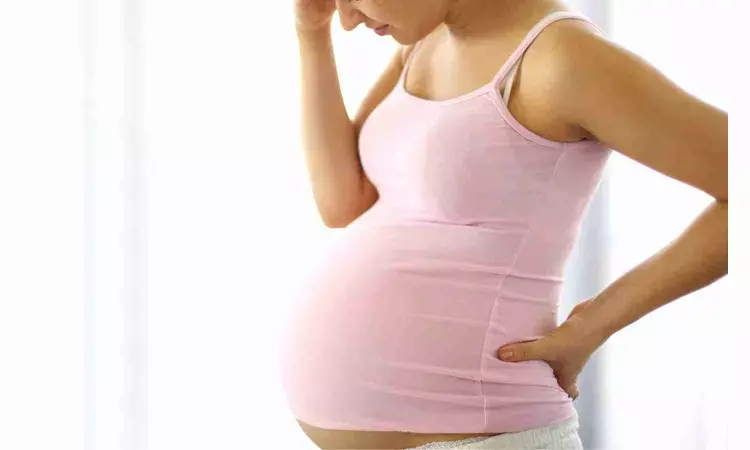- Home
- Medical news & Guidelines
- Anesthesiology
- Cardiology and CTVS
- Critical Care
- Dentistry
- Dermatology
- Diabetes and Endocrinology
- ENT
- Gastroenterology
- Medicine
- Nephrology
- Neurology
- Obstretics-Gynaecology
- Oncology
- Ophthalmology
- Orthopaedics
- Pediatrics-Neonatology
- Psychiatry
- Pulmonology
- Radiology
- Surgery
- Urology
- Laboratory Medicine
- Diet
- Nursing
- Paramedical
- Physiotherapy
- Health news
- Fact Check
- Bone Health Fact Check
- Brain Health Fact Check
- Cancer Related Fact Check
- Child Care Fact Check
- Dental and oral health fact check
- Diabetes and metabolic health fact check
- Diet and Nutrition Fact Check
- Eye and ENT Care Fact Check
- Fitness fact check
- Gut health fact check
- Heart health fact check
- Kidney health fact check
- Medical education fact check
- Men's health fact check
- Respiratory fact check
- Skin and hair care fact check
- Vaccine and Immunization fact check
- Women's health fact check
- AYUSH
- State News
- Andaman and Nicobar Islands
- Andhra Pradesh
- Arunachal Pradesh
- Assam
- Bihar
- Chandigarh
- Chattisgarh
- Dadra and Nagar Haveli
- Daman and Diu
- Delhi
- Goa
- Gujarat
- Haryana
- Himachal Pradesh
- Jammu & Kashmir
- Jharkhand
- Karnataka
- Kerala
- Ladakh
- Lakshadweep
- Madhya Pradesh
- Maharashtra
- Manipur
- Meghalaya
- Mizoram
- Nagaland
- Odisha
- Puducherry
- Punjab
- Rajasthan
- Sikkim
- Tamil Nadu
- Telangana
- Tripura
- Uttar Pradesh
- Uttrakhand
- West Bengal
- Medical Education
- Industry
Perinatal depression tied to increased pediatric emergency department use in first year of life: Study

USA: Perinatal depressive symptoms, ranging from mild to severe, are associated with increased total and nonemergent infant emergency department (ED) use, a recent study published in Health Affairs has revealed.
The Rutgers Health research contributes to the evidence base linking perinatal depression screening and pediatric use of the emergency department.
The study examined the association between the severity of perinatal depression and the use of emergency departments in the first year of an infant’s life.
Perinatal mental health conditions affect up to 20 percent of pregnant or postpartum people and are associated with a wide range of adverse outcomes for the child, including increased use of a hospital’s emergency department.
Using the emergency department can be costly, especially for Medicaid, which is billed for disproportionately more pediatric emergency department visits compared with private insurance.
While perinatal people may experience a broad range of depression symptom severity, there is little research examining the relationship between symptom severity and health care use and emergency department use. To address this gap, Slawa Rokicki, an assistant professor at the Rutgers School of Public Health, reviewed data in New Jersey, a state with universal maternal depression screening.
Rokicki, who linked birth record data for the years 2016-2018 to hospital discharge records for infants in their first year of life, found that infants of mothers with moderate to severe depressive symptoms had 21 percent more emergency department visits than those who had no depression, while infants of mothers with mild symptoms had 10 percent more emergency department visits.
According to the study, for infants whose delivery was paid for by Medicaid, the total emergency department charges in the first year were 43 percent higher for infants with mothers with moderate to severe depression and 19 percent higher for mothers with mild symptoms compared to those with no symptoms.
“The large disparities among Medicaid beneficiaries suggests opportunities for that program to optimize screening and referrals for perinatal depression, with potential cost-saving benefits in reducing nonemergency pediatric emergency department visits,” said Rokicki.
The study’s findings suggest that universal screening of perinatal people at delivery may be beneficial in identifying those who may be at risk of postpartum depression before they leave the hospital. “This is critical because postpartum people often face multiple barriers to postpartum care and most people with perinatal mental health conditions are not diagnosed,” said Rokicki.
Additionally, routine screening in emergency departments may also help identify parental mental health conditions and connect individuals to resources.
“We know from prior research that postpartum depression screenings in pediatric emergency departments are feasible,” said Rokicki.
Rokicki said emergency department screens need to follow patient-centered, nonstigmatizing approaches as those in the emergency department who screen positive for depression are likely to be part of a socially vulnerable population.
Reference:
Slawa Rokicki, Perinatal Depression Associated With Increased Pediatric Emergency Department Use And Charges In The First Year Of Life, Health Affairs, https://doi.org/10.1377/hlthaff.2023.01443.
Dr Kamal Kant Kohli-MBBS, DTCD- a chest specialist with more than 30 years of practice and a flair for writing clinical articles, Dr Kamal Kant Kohli joined Medical Dialogues as a Chief Editor of Medical News. Besides writing articles, as an editor, he proofreads and verifies all the medical content published on Medical Dialogues including those coming from journals, studies,medical conferences,guidelines etc. Email: drkohli@medicaldialogues.in. Contact no. 011-43720751


